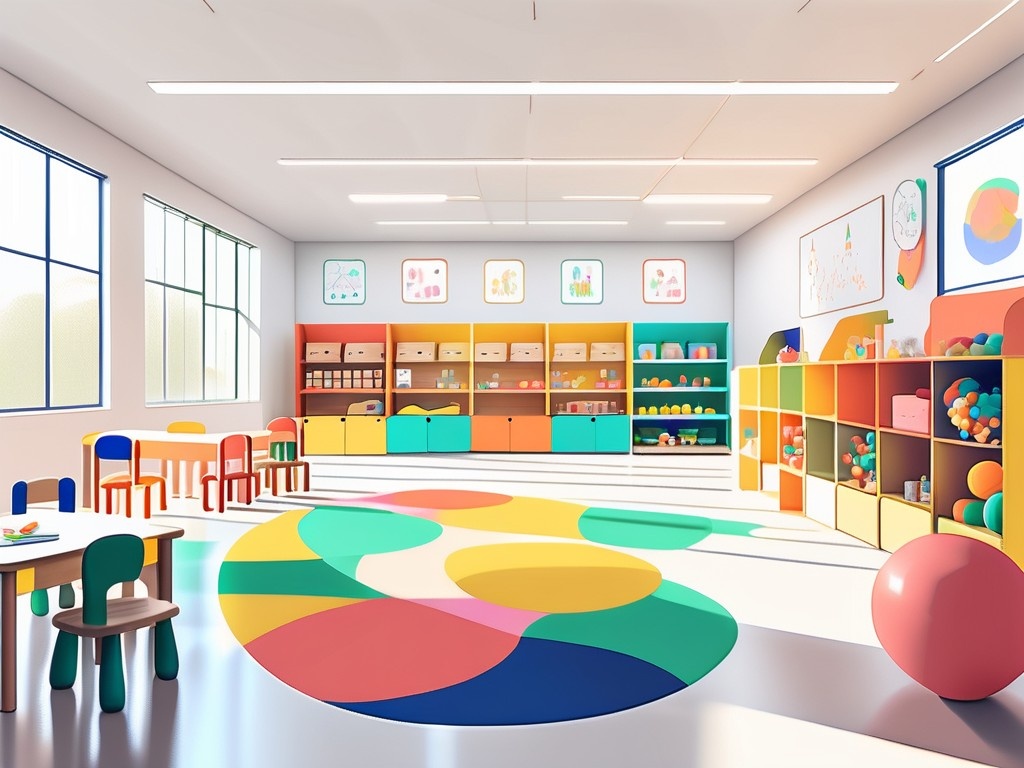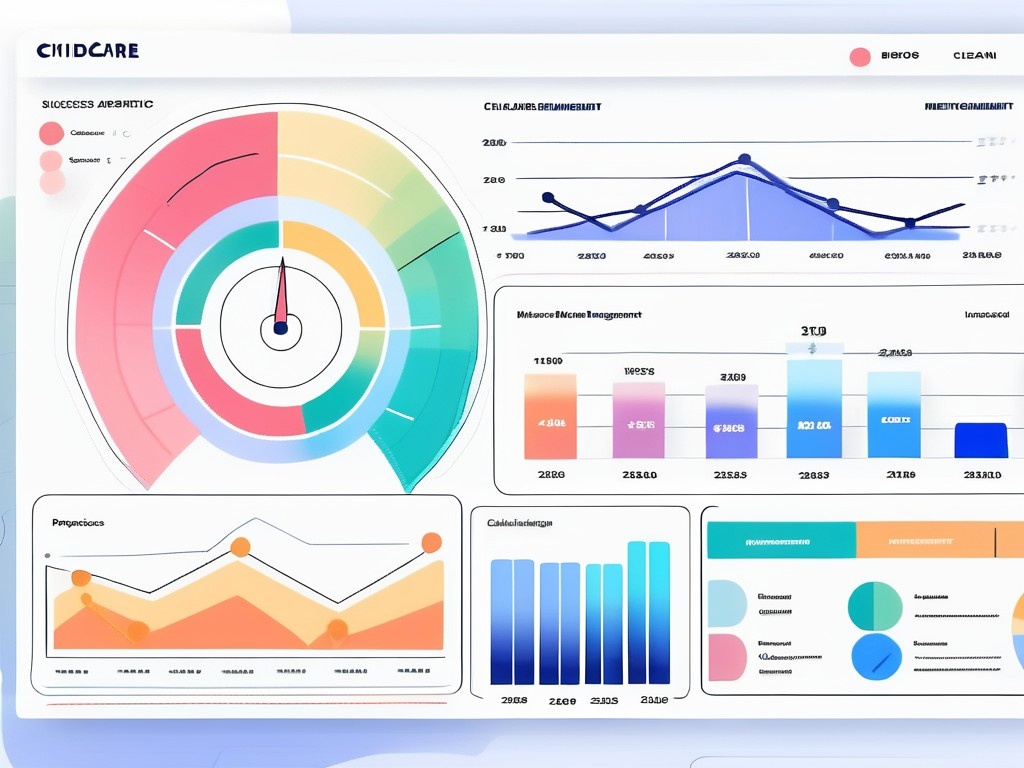Understanding the Importance of Proper Childcare Management
In today’s fast-paced world, the significance of proper childcare management cannot be overstated. Effective management strategies ensure the safety and well-being of children while facilitating a structured learning environment. This not only benefits the children but also supports parents and enhances the overall reputation of the childcare facility.

Proper childcare management involves a comprehensive approach to maintaining safety protocols, ensuring staff competency, and fostering a nurturing atmosphere. By investing in well-defined management practices, childcare providers can create environments where children thrive emotionally, socially, and intellectually.
The Role of Childcare Management in Safety
The foremost responsibility of any childcare facility is to ensure the safety of the children in its care. Childcare management plays a critical role in establishing safety protocols and ensuring compliance with regulations. This includes everything from conducting background checks on staff to implementing emergency procedures.
Effective management also involves regular training and drills for staff to handle emergencies. A well-structured safety protocol enables providers to respond efficiently to any situation, thereby minimizing risk and ensuring children are safe at all times. Furthermore, engaging parents in safety discussions and workshops can enhance community trust and provide families with peace of mind, knowing that their children are in a secure environment. This collaborative approach not only strengthens the bond between parents and childcare providers but also fosters a culture of safety awareness among all stakeholders.
Schedule a free 30-minutes session with us!
Efficiency in Childcare: Why it Matters
Efficiency in childcare management leads to better service delivery, reduced operational costs, and improved staff morale. By streamlining administrative processes and daily operations, childcare managers can focus more on the developmental needs of children. This is important as time spent on administrative tasks can detract from the interaction staff has with children.
Additionally, efficient operations help to foster a positive environment. When staff members are not overwhelmed with paperwork or disorganized processes, they can engage effectively with both children and parents, creating a harmonious atmosphere conducive to learning and growth. Moreover, implementing technology solutions, such as management software, can significantly reduce the administrative burden on staff. This allows for better tracking of children’s progress, scheduling, and communication with parents, ultimately leading to a more cohesive childcare experience. By embracing innovation, childcare facilities can not only enhance operational efficiency but also adapt to the evolving needs of families in their care.
Key Elements of a Safe, Efficient Childcare Environment
A safe and efficient childcare environment is built on several key elements that contribute to the overall success of a childcare program. These elements include physical safety measures, emotional safety, and the optimization of operational processes.
Physical Safety Measures in Childcare
Physical safety in childcare encompasses a range of practices designed to protect children from harm. This includes maintaining a secure facility, using age-appropriate equipment, and ensuring proper supervision at all times. Regular safety inspections should be conducted to identify and mitigate any potential hazards.
Moreover, childcare management should ensure that staff members are trained to recognize risky situations and respond accordingly. Creating a culture of safety means every staff member must understand their role in maintaining a secure environment for children. Additionally, implementing safety drills, such as fire evacuations or lockdown procedures, can prepare both staff and children for emergencies, ensuring everyone knows what to do in case of an unforeseen event. These proactive measures not only enhance physical safety but also instill a sense of confidence in both parents and children that their wellbeing is a top priority.
Emotional Safety and Its Impact
Emotional safety is just as important as physical safety in childcare settings. Children need to feel secure, valued, and understood to be able to express themselves and engage in learning. Effective childcare management includes implementing practices that foster an inclusive and supportive environment.
Such practices include building strong relationships between staff and children, encouraging open communication, and recognizing the individual emotional needs of each child. When children feel emotionally safe, they are more likely to participate actively in their learning processes. Furthermore, incorporating social-emotional learning (SEL) into the curriculum can significantly enhance emotional safety. SEL programs teach children essential skills such as empathy, self-regulation, and conflict resolution, equipping them with tools to navigate their emotions and relationships effectively. This holistic approach not only nurtures emotional development but also creates a positive atmosphere where children can thrive academically and socially.
Streamlining Operations for Efficiency
Streamlining operations is crucial in creating a responsive and efficient childcare environment. This involves evaluating existing processes and identifying areas for improvement, such as simplifying enrollment processes, optimizing staffing schedules, and leveraging available resources effectively.
Automation and delegation of tasks can also enhance operational efficiency. Using management software to handle administrative tasks frees up time for staff to focus on interacting with children, thereby enhancing the quality of care provided. Additionally, regular staff meetings and feedback sessions can help identify bottlenecks in operations and foster a collaborative atmosphere where solutions can be brainstormed collectively. By encouraging input from all team members, childcare programs can not only improve their operational processes but also boost staff morale, leading to a more engaged and motivated workforce dedicated to providing the best care possible.
Schedule a free 30-minutes session with us!
Implementing Effective Childcare Management Strategies
Implementing effective childcare management strategies requires a commitment to continuous improvement and professional development. Childcare providers should be proactive in making changes that enhance the quality and safety of their services.

Staff Training and Development
Investing in staff training and development is vital for maintaining high standards in childcare management. Regular training ensures that staff are equipped with the latest knowledge in childhood development, safety protocols, and emergency response.
By fostering a culture of learning, childcare facilities can help staff members grow in their roles, leading to better outcomes for children. Furthermore, trained staff members are more likely to feel confident in their abilities, enhancing job satisfaction and reducing turnover rates. This investment in human capital not only uplifts the individual staff member but also creates a ripple effect that positively impacts the entire childcare environment, as children thrive under the care of knowledgeable and engaged educators.
Communication and Collaboration in Childcare
Effective communication and collaboration among staff, parents, and children are fundamental elements of successful childcare management. Establishing open lines of communication promotes transparency and strengthens relationships within the community.
Regular meetings and feedback mechanisms can help to align expectations and share best practices. Encouraging collaboration among staff fosters teamwork and allows for a more holistic approach to childcare, benefiting everyone involved. Additionally, involving parents in the decision-making process and encouraging their input can create a sense of ownership and partnership, further enriching the childcare experience for the children. Workshops and family events can also serve as platforms for building community ties, allowing parents and staff to connect on a more personal level while sharing insights about child development.
Utilizing Technology in Childcare Management
Incorporating technology into childcare management can vastly improve efficiency. Management software can help streamline administrative tasks such as enrollment, billing, and record-keeping. Mobile applications facilitate communication between staff and parents, allowing real-time updates regarding a child’s activities and well-being.
However, technology should complement, not replace, personal interactions. Finding the right balance ensures that technology enhances the childcare experience rather than detracts from the essential human element. For instance, digital portfolios can be used to document a child’s progress and milestones, providing parents with a visual narrative of their child’s development while still encouraging face-to-face discussions during parent-teacher conferences. Moreover, utilizing online platforms for training and professional development can offer staff flexible learning opportunities, enabling them to stay current with best practices in childcare without the constraints of traditional scheduling.
Evaluating the Success of Your Childcare Management
Regular evaluation is crucial for understanding the effectiveness of childcare management strategies. By assessing different aspects of daycare operations, managers can identify strengths and areas for improvement. This process not only enhances the overall quality of care but also fosters a sense of trust and security among parents, who are often looking for reassurance that their children are in safe and nurturing environments.

Regular Safety Audits and Checks
Conducting regular safety audits is necessary to maintain high standards of safety care. These audits involve thorough inspections of the facility, equipment, and staff performance. By identifying safety hazards early, childcare providers can take corrective action before issues escalate. This proactive approach not only protects children but also minimizes liability risks for the facility.
Safety checks should not be a one-time effort. Establishing a routine ensures that safety remains a priority and fosters a culture of vigilance among staff and families alike. Furthermore, involving staff in the audit process can enhance their awareness and commitment to safety protocols, leading to a more cohesive and safety-conscious team. Regular training sessions can also reinforce the importance of these checks and keep everyone updated on best practices.
Schedule a free 30-minutes session with us!
Assessing Efficiency in Daily Operations
Analyzing the efficiency of daily operations is essential in identifying bottlenecks and opportunities for improvement. Staff feedback and performance metrics provide valuable insights into how effectively resources are being utilized and whether objectives are being met. This analysis can reveal patterns and trends that may not be immediately apparent, allowing managers to make informed decisions based on data rather than assumptions.
By understanding operational efficiencies, childcare managers can fine-tune policies and procedures to enhance service delivery and ultimately improve the quality of care provided to children. Additionally, streamlining processes can lead to reduced stress for staff, allowing them to focus more on engaging with children rather than getting bogged down by administrative tasks. This can create a more positive atmosphere, benefiting both the children and the staff.
Feedback Mechanisms for Continuous Improvement
Implementing feedback mechanisms is essential for continuous improvement in childcare management. Gathering input from staff, parents, and even children can provide invaluable perspectives on what works well and what could be improved. This multi-faceted approach to feedback ensures that all voices are heard, creating a more inclusive environment where everyone feels valued.
Using surveys, suggestion boxes, and regular check-ins can facilitate open communication and allow everyone to feel engaged in the improvement process. Continuous feedback helps create a responsive environment that adapts to the changing needs of children and families. Moreover, recognizing and acting on feedback can significantly boost morale among staff and parents, as it demonstrates a commitment to excellence and a willingness to evolve. This dynamic interaction fosters a sense of community and partnership, which is essential for the holistic development of children in care.
